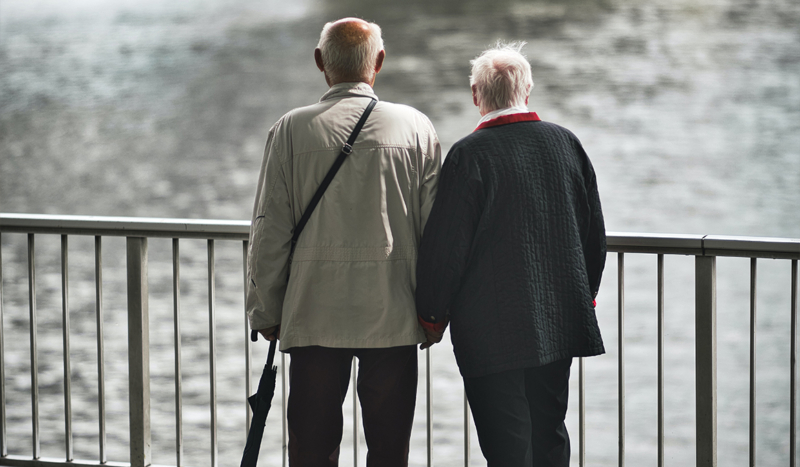
Pope Leo XIV has issued a powerful call for the Catholic Church to launch a “revolution of gratitude and care” for the elderly in his first message for the World Day of Grandparents and the Elderly scheduled for July 27, 2025.
In his message released July 10 by the Vatican press office, Pope Leo drew extensively from Sacred Scripture to illustrate God’s providential care for the elderly. “The Jubilee we are now celebrating helps us to realize that hope is a constant source of joy, whatever our age,” the Pope wrote. “When that hope has also been tempered by fire over the course of a long life, it proves a source of deep happiness.”
The Pontiff highlighted biblical figures who were called to serve God’s plan in their later years, noting that “Sacred Scripture offers us many examples of men and women whom the Lord called late in life to play a part in his saving plan.” He referenced Abraham and Sarah, who struggled with childlessness in their advanced years, and Moses, who “was called to set his people free when he was already eighty years old.”
Pope Leo emphasized the unique role of older adults in God’s plan, stating that “God repeatedly demonstrates his providential care by turning to people in their later years.” The Pope explained that through these biblical examples, “God thus teaches us that, in his eyes, old age is a time of blessing and grace, and that the elderly are, for him, the first witnesses of hope.”
The message stressed the importance of intergenerational relationships, with the Pope writing: “If it is true that the weakness of the elderly needs the strength of the young, it is equally true that the inexperience of the young needs the witness of the elderly in order to build the future with wisdom.”
The Pontiff criticized contemporary society’s treatment of the elderly, stating that countries are growing all too accustomed to letting this significant and enriching part of their life be marginalized and forgotten.” He called for a fundamental shift in approach, stating that “a change of pace is needed that would be readily seen in an assumption of responsibility on the part of the whole Church.”
He challenged every parish and Catholic organization to become active participants in caring for the elderly.
“Every parish, association and ecclesial group is called to become a protagonist in a ‘revolution’ of gratitude and care,” he wrote, outlining specific actions including “regular visits to the elderly, the creation of networks of support and prayer for them and with them, and the forging of relationships that can restore hope and dignity to those who feel forgotten.”
Pope Leo also noted that Pope Francis specifically designed the World Day of Grandparents and the Elderly to address loneliness among the elderly, particularly during this Holy Year.
“Those who are unable to come to Rome on pilgrimage during this Holy Year may ‘obtain the Jubilee Indulgence if they visit, for an appropriate amount of time, the elderly who are alone… making, in a sense, a pilgrimage to Christ present in them’,” the Pope explained.
The message emphasized the spiritual significance of such visits, stating: “Visiting an elderly person is a way of encountering Jesus, who frees us from indifference and loneliness.”
In a particularly moving section of his message, Pope Leo XIV addressed elderly readers directly, acknowledging the physical challenges of aging while emphasizing the enduring capacity for love and prayer.
“Our bodies are weak, but even so, nothing can prevent us from loving, praying, giving ourselves, being there for one another, in faith, as shining signs of hope,” he wrote, referencing Pope Francis’s words during a recent hospitalization.
Pope Leo then stressed that regardless of physical limitations, “We possess a freedom that no difficulty can rob us of: it is the freedom to love and to pray. Everyone, always, can love and pray.”
His message also paid tribute to the contributions of grandparents and elderly family members, stating: “How often our grandparents have been for us examples of faith and devotion, civic virtue and social commitment, memory and perseverance amid trials! The precious legacy that they have handed down to us with hope and love will always be a source of gratitude and a summons to perseverance.”
Embracing the elderly “helps us to understand that life is more than just the present moment, and should not be wasted in superficial encounters and fleeting relationships. Instead, life is constantly pointing us toward the future,” he wrote.
The Pope concluded his message with a call for elderly Catholics to remain active in their faith communities and for all Catholics to recognize the elderly as sources of wisdom and hope.
“May we be renewed each day by our encounter with him in prayer and in Holy Mass,” he wrote. “Let us lovingly pass on the faith we have lived for so many years, in our families and in our daily encounter with others.”
The World Day of Grandparents and the Elderly, established by Pope Francis in 2021, falls on the fourth Sunday of July each year, coinciding with the feast of Saints Joachim and Anne, the grandparents of Jesus.
